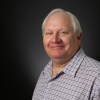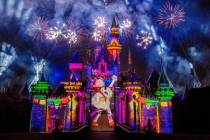Tennis is vehicle for Holocaust survivors’ friendship
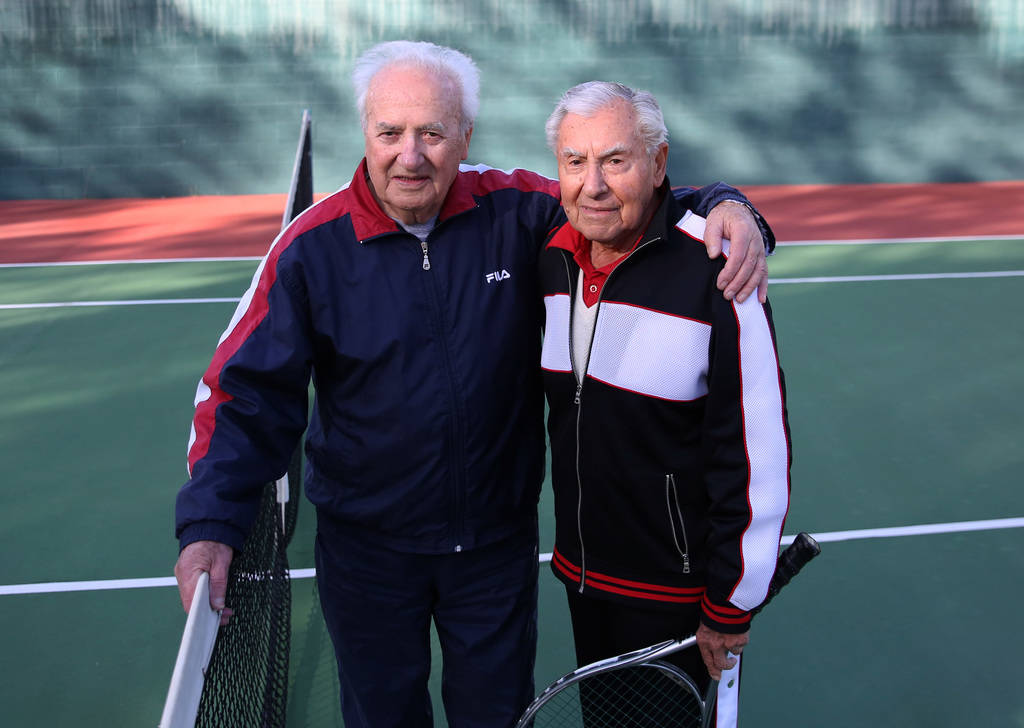




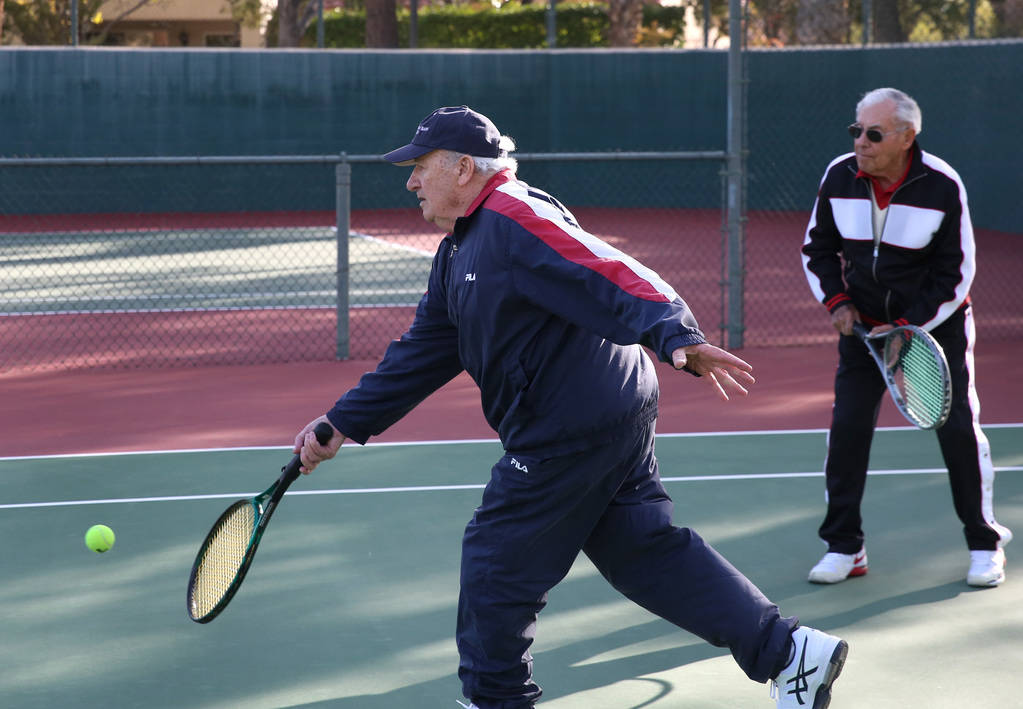


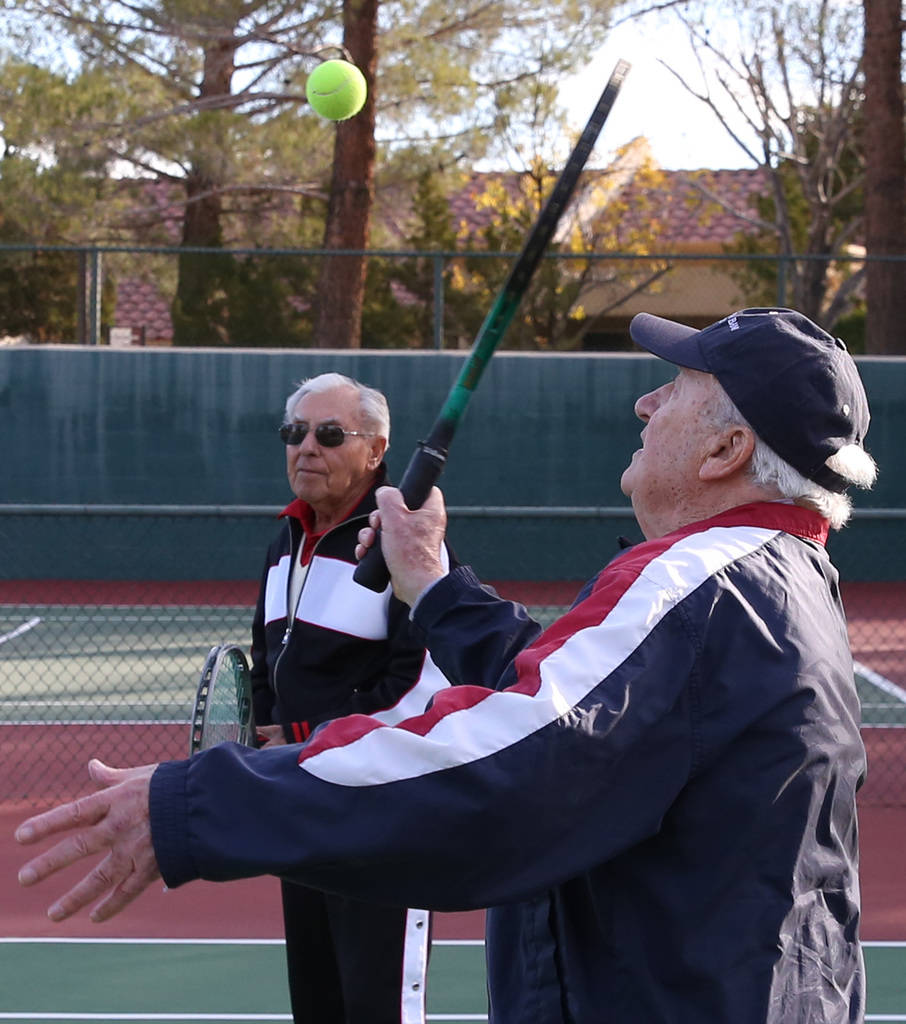
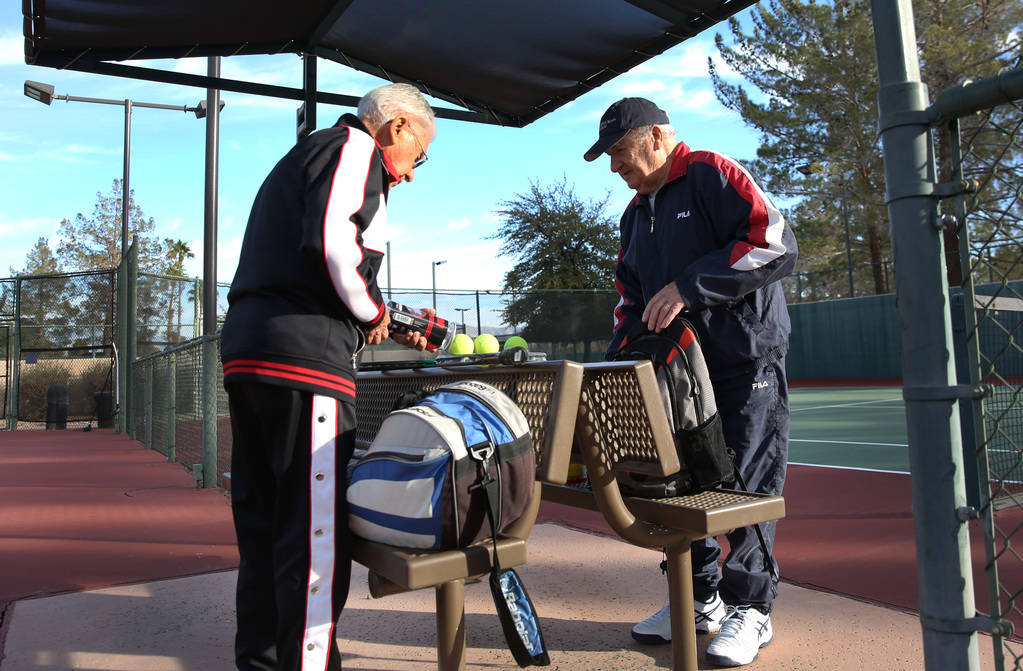
The ingredients of a good friendship? Shared experience, even if it’s the kind of experience few would want to share. A hard-earned and intractable determination to live each day as it comes without dwelling on the past.
And maybe a good forehand wouldn’t hurt, either.
Just about every weekday morning, Janos Strauss, who turned 90 last week, and Alexander Kuechel, 94, meet at Mountain Shadows Community Center to play tennis. They play doubles, sometimes as partners and sometimes on opposing teams, and each day’s match is notable not just for the strong strokes and enviable energy they bring to their games but as a daily testament to the power of perseverance.
Strauss and Kuechel are Holocaust survivors. Both lost family members in concentration camps and, after the war, had to rebuild their lives from nothing. Their paths brought them to Las Vegas as retirees, where they met through a Holocaust survivors group and where, Kuechel says, “we played tennis here and we got to know each other.”
Now they’re friendly regulars at the community center. As they await the arrival of the day’s tennis partners, passers-by who likely don’t know of their shared history offer greetings. Both men have shared their survival stories with groups of various sorts, but it’s something they speak little of between themselves.
Kuechel was born in Berlin, Germany, and was in seven camps during the war. “My family was killed in Auschwitz,” he says, and, by the end of the war, “I was all alone.” He moved to Los Angeles and, after retiring as a real estate broker, came to Las Vegas.
Strauss was born in Nyirtass, a small town in the northeast corner of Hungary, and was sent to Auschwitz as a teenager. His father, older brothers and many close relatives didn’t survive the camps. After retiring as a manufacturing plant manager in Brooklyn, New York, he moved to Las Vegas.
How did they become friends? “Because we had the same path,” Kuechel says. “He was in the concentration camps. So was I.”
But, Kuechel adds, “it’s something we don’t talk about.”
Ask them about tennis, though, and they’re
happy to talk about that.
“I’ve been playing tennis for 65 years,” Kuechel says. “I used to be skinny. I used to (do) ice skating. I used to be a gymnast. I used to (play) football in Germany, which is soccer. So I was in sports all my life, basically.”
Strauss played table tennis when he was younger and took up tennis at the community center after being introduced to it as a program the club offered. He likes the sport because of “all of the movement — running, stretching, getting a variety of physical movement.”
As they share a few stories, glimpses of the horrors they experienced emerge. Strauss recalls that, as he arrived at Auschwitz as a 15-year-old, people who were there “whispered to me, saying ‘You are 17.’ ” He knows that he would have been killed if he had revealed his true age. As it was, he was beaten several times during his imprisonment and saw many die.
Kuechel has his own stories of survival and terror. “My family was killed in Auschwitz,” he says, and surviving the camps was largely about luck, “with food and anything at all. Many people gave up. They couldn’t take it. There was no future.”
But they both remember liberation, too. It was, Strauss says, “like we were reborn.”
After the war’s end, both men spent time in displacement camps while awaiting resettlement.
“Nobody wanted Jewish people. It was very difficult anyplace in the world,” Kuechel says. “I personally was almost five years in Germany before I was able to come to the United States of America.”
Once here, both men looked for work. Kuechel went to night school to learn English, writing and composition. But, he says, “I didn’t like New York. Somebody said to me, ‘California, palm trees, sunshine.’ That’s for me.”
He moved to California, landing a job as a waiter at the Beverly Hills Hotel and eventually becoming a businessman. Over time, he owned a liquor store and three Mexican restaurants and became a cosmetologist and a real estate broker.
Strauss stayed with relatives in the Bronx after his arrival. Landing a job in a machine shop, he eventually became a toolmaker and foreman, and retired as plant manager.
Kuechel and his wife, Lilo, have been married for 63 years, while Strauss and his wife, Celia, have been married since 1992 (his first wife, Anna, died in 1989).
Their secret to aging well? “I feel it’s the power of positive thinking,” Kuechel says. “You’ve got to eat modestly, you have to be self-disciplined and you’ve got to be lucky enough to be healthy. And if you dress well, you’ll feel good about (yourself), too. That’s very important.”
Also key, they say, is a focus on the blessings of the present rather than the wrongs of the past.
“I take it day by day,” Strauss says. “I don’t worry about the future.”
“If you live with the past, you cannot survive,” Kuechel agrees. “It’s impossible.”
Contact John Przybys at jprzybys@reviewjournal.com or 702-383-0280. Follow @JJPrzybys on Twitter.



